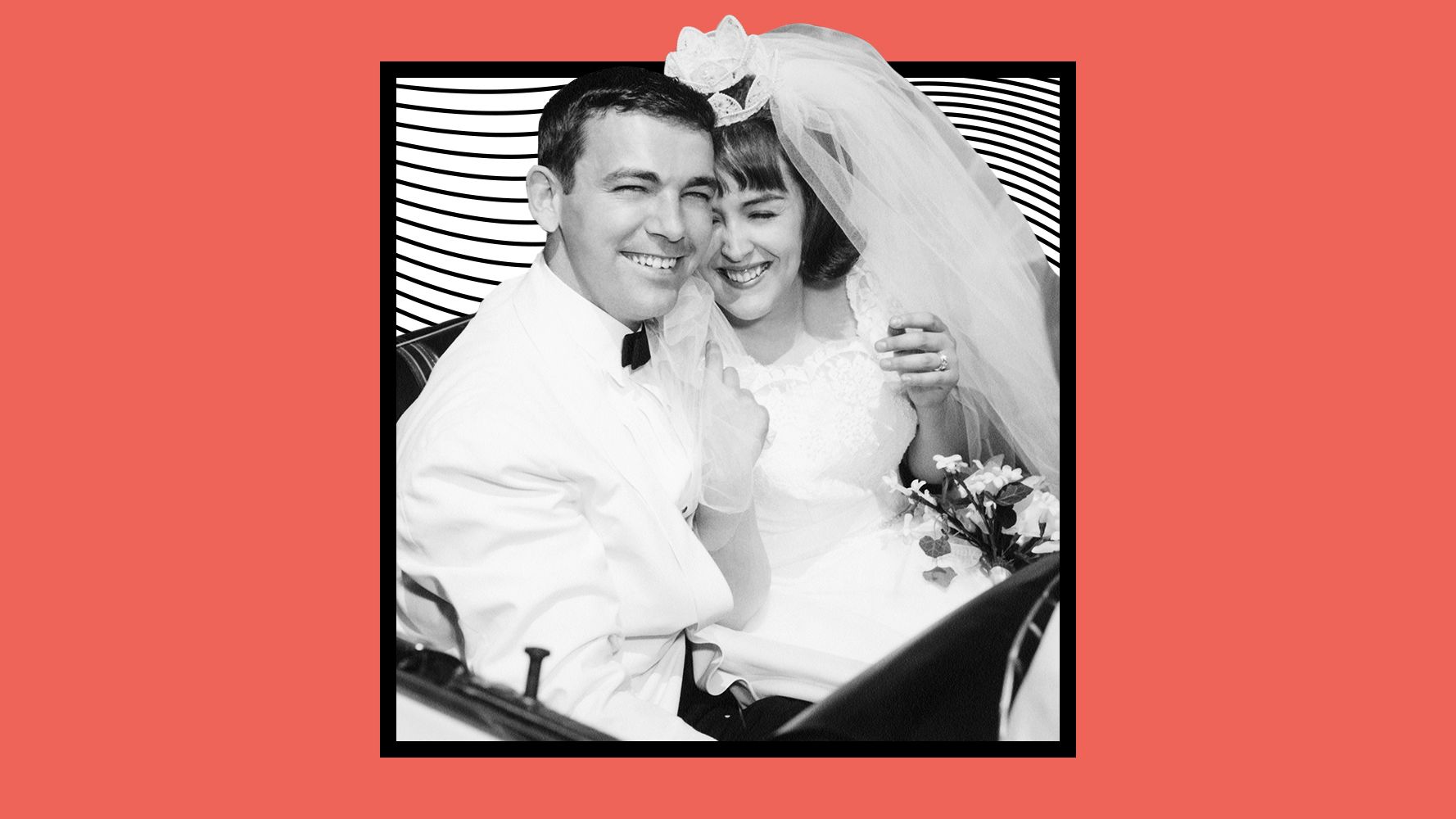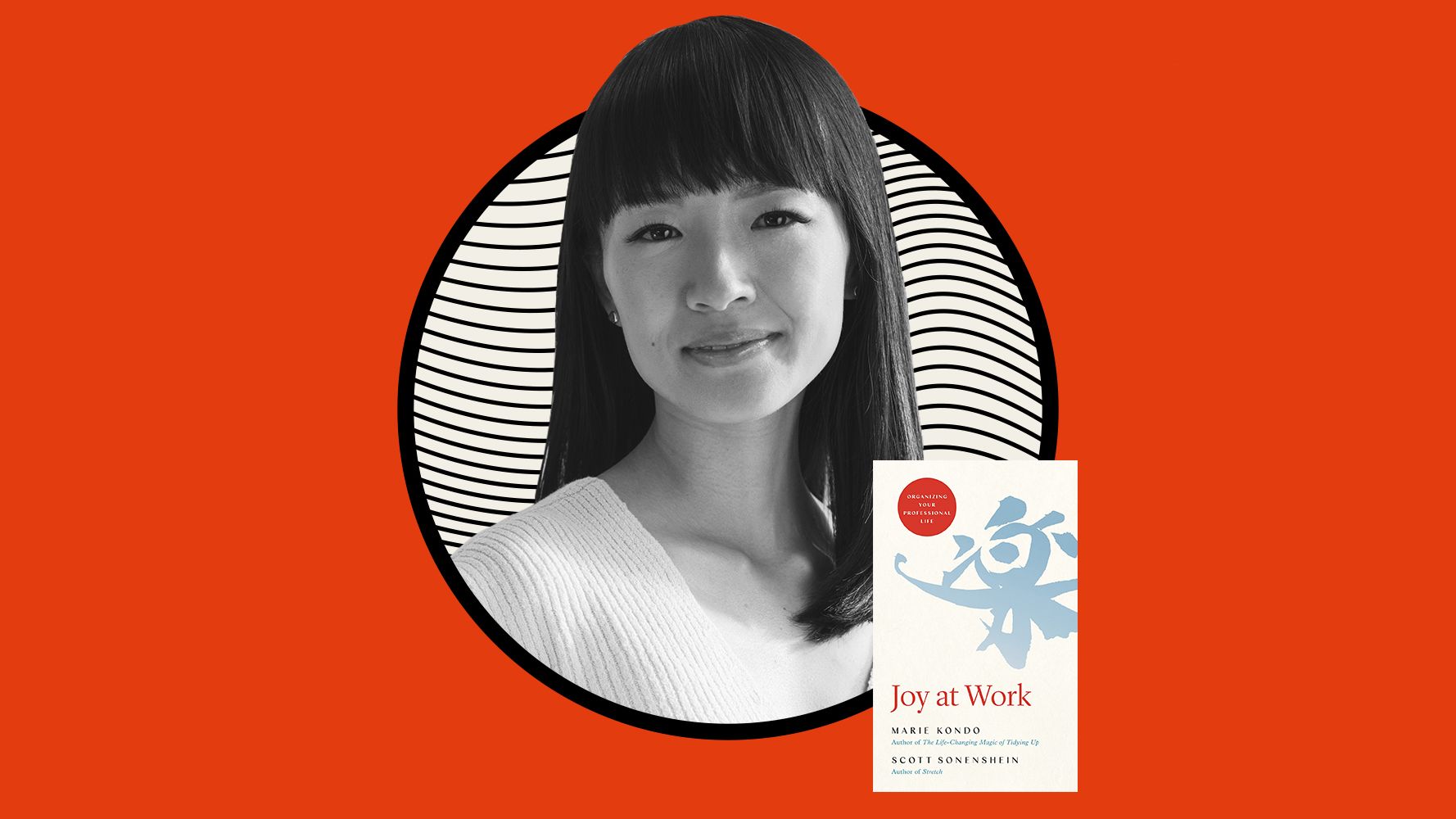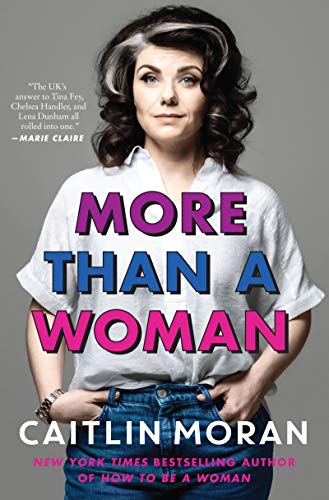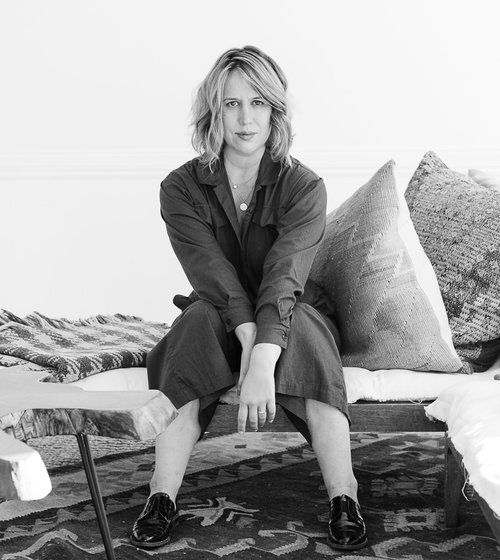Warning Working Moms: Your Partner Is Your Glass Ceiling
Bestselling author and essayist Caitlin Moran warns in her new book More Than a Woman that a mother’s career is only as good as the man or woman she marries.

Six months into the pandemic I personally know more than a dozen women who have quit their jobs, taken an extended leave, or significantly scaled back their careers in order to care for and homeschool their children. I know these women well enough to be certain that they’re all married to perfectly nice men who, despite their niceness, willingness to buy tampons, and Biden-Harris yard signs, think their own jobs are more important than their wives’ jobs. They might not say it out loud, but that is the subtext of your wife dropping out of the workforce to educate your children while you lock yourself in the bathroom and take Zoom meetings all day.
I’ve been lucky so far. My kids are small and they don’t need extensive help with long division or the periodic table (two things I’m total shit at), but they’re still around. All. The. Time. And yet I’ve been able to finish a novel, start a new podcast series, and write this article mostly because I married to a man who helps take care of our kids.
I’ve been thinking about this a lot: How I’m able to keep the career I’ve worked 20 years to build because my husband takes on just as many childcare duties as I do. Then I started reading the journalist/novelist/phenom Caitlin Moran’s superbly witty and poignant new book More Than a Woman (out today), a follow-up to her bestselling 2011 memoir How to Be a Woman, and she put all of my vague and hazy appreciation for marrying this kind of man into a proper sentence. WOMEN MARRY THEIR GLASS CEILINGS.
“If she wants children and a job, a woman’s life is only as good as the man or woman she marries,” Moran writes. “That’s the biggest truth I know. All too often women are marrying their glass ceilings.”
Let that sink in for a moment. I did. And then I thought back on the legions of disappointing men I dated, slept with, or desperately wanted to love me in my 20s and early 30s—the brilliant but troubled lawyer who couldn’t start his day without smoking a joint, the depressed trust funder who played 12 hours of video games daily and carried on a cyber affair with an avatar named luvbunnie, the finance guy who tried to steal my dog—and I wondered whether I would have been able to accomplish all the things that I’ve accomplished in the last five years had I married any of them (my five year anniversary was on Saturday).
The answer is fuck no.
Similarly, would Caitlin Moran have been able to write the feminist manifesto How to Be a Woman, the television series Raised by Wolves, the novel How to Build a Girl, the screenplay of that novel, and the new More Than a Woman (a raw and delightful roadmap of what it’s like to be a woman and mother in the middle of her life) if her supportive husband was also not taking care of her children?
Get exclusive access to fashion and beauty trends, hot-off-the-press celebrity news, and more.

'Caitlin Moran, author whose husband never held her back.'
The answer, as you have probably already guessed, is also fuck no.
“Literally every inch of success that I've got is directly correlated to how much my husband was willing to be an amazing parent. There were whole years where he went, ‘Okay, I've got the house, I've got the kids, you go and work,’” Moran told me when I called her up recently to talk about this nuptially-imposed glass ceiling.
Caitlin Moran was already an accomplished journalist when she married her husband Pete Paphides, also a journalist and author, in 1999. When they had children they attempted to split the childcare duties as evenly as possible, but much of the day-to-day in the early years fell on Moran, who worked from home. The entire time she was breastfeeding and changing diapers she was literally writing a book in her head. When their daughter was one, Paphides began working from home so he could have a more flexible schedule and Moran could get what would become How to Be a Woman down on paper.
“It's semi-ironic, though: A book about feminism could not have existed without a man, my husband, because I just would not have been able to write the book. He just took all the childcare on for the five months while I was writing it. And I didn't waste a second of it, because I was very aware every second I was in front of that laptop, he was with two small children under the age of five. I really needed to honor that sacrifice.”
Paphides no longer had an office job, but he was the chief music correspondent for the Times of London. Yet, when Moran finished her book he turned in his resignation.
“She finished the first draft on the week that I handed in my notice,” Paphides told me. “I just went to a cafe about two miles away and spent the day there reading the book. I felt like I was just reading a future masterpiece, it was so exciting. And I just couldn't wait for other people, for the rest of the world to read it. I was so proud. Thankfully, other people did like it.”
A book about feminism could not have existed without a man, my husband, because I just would not have been able to write the book.
That book blew up, selling nearly half a million copies in 16 countries. Celebrities like Lady Gaga and Kate Moss were all over it. Suddenly Moran was offered a zillion different projects—a new book, a sitcom, speaking engagements all over the world. And like almost every woman I know she found it incredibly hard to say no.
“I was in quite a manic state for a couple of years, and it took me about five years to work through all the contracts that I'd signed in that kind of giddy first six months,” Moran said. “And, again, Pete was just amazing. Every weekend, every school holiday, he would just have to go off with the kids, because I was working seven-day weeks. And I just sadly watched them leave the house to go and have a nice time in the park or go to the seaside. And I'd just be sitting out in the garden, chain smoking over my laptop, just going, ‘I'll see you in five years kids. Mummy's being a phenomenon right now. I'm so sorry.’ So I did miss a fair chunk of their childhood, but Pete took lots of pictures of it, and it looked like it was nice, but I was not there for it.”
Paphides allowed Moran’s glass ceiling to get higher and higher. She never had to break through, because his support allowed her career to be limitless. That’s not always the case.
My friend group isn’t an anomaly. Studies during the pandemic have shown that women’s jobs are 1.8 times more vulnerable than men’s jobs right now. This year, in April, the female labor force participation rate dropped to its lowest point in 34 years. Women are twice as likely as men to be responsible for homeschooling. We already often bear the brunt of domestic duties and emotional labor. This means that having the right partner—one who sees your career and success as equal to theirs—is coming into stark relief in ways that could have potentially been ignored before an economy-tanking global health crisis.
Glass ceilings can be difficult to identify, transparent as they are, particularly when they come in the form of a man that your hormones are telling you is “the one.” Moran knew Paphides wouldn’t be her glass ceiling early on when she read an essay of his in defense of female pubic hair.
“He was a feminist before I was,” Moran said. “But when I was a young woman it never would have occurred to me to talk about co-parenting and schedules. You went into marriage without asking these questions. But now young women do need to ask. I have these conversations with my daughters. If you are considering spending your life with someone and entering into a business deal where you create human beings, you have to ask them what that will look like. Asking those questions can save you 20 years of misery and a massive divorce. Now I've got to the age of 45 and I look around at my female friends, and each mother’s career is exactly as big and successful as the willingness of her partner to support her and take them to childcare. It's a direct correlation. The higher the women that I know are flying, the more their husbands are doing.”
I never asked those questions. I should have, but I didn’t think of it. Still, I chose a good man, a man who called me instead of texting me after the first time we slept together, a man who told me he loved me first, a man who consistently flew across the country to cheer me along on my first book tour. It was clear by the time I said “I do,” that this was a human being who would never hold me or my pubic hair back—in or out of a pandemic.
Jo Piazza is the award-winning author of Charlotte Walsh Likes to Win and host of the Podcast "Committed."
RELATED STORY

Jo Piazza is author of seven critically acclaimed books, both fiction and non-fiction which have been translated into more than ten languages, including her most recent, Charlotte Walsh Likes to Win.


